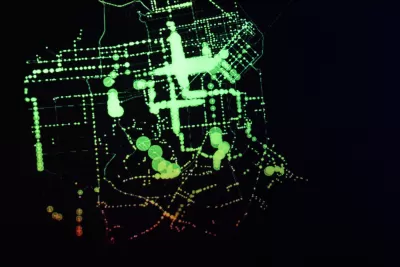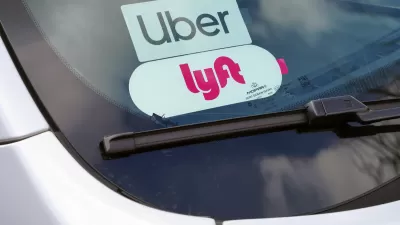Mobility companies are sitting on troves of valuable data. Sharing data with cities remains an issue, but both sides are becoming more aware of the mutual benefits.

Nate Berg takes a closer look at the tension between cities and mobility companies around data sharing. This has been an ongoing issue with differing perspectives on the role and use of data. "The search is on for bits of common ground – a gridlocked urban transportation network, after all, is just as bad for a city as it is for a transportation company," says Berg.
Cities say they need the data to better understand how transportation systems operate and how to best provide services, and the wealth of private data is valuable. But transportation network companies argue that data privacy is a central concern, and some question whether cities have the capability and resources to handle the data.
Berg notes that the normalizing of data sharing has been happening on a number of fronts. Standards like the General Transit Feed Specification, SharedStreets, and the Mobility Data Specification are helping cities and private companies share data and address privacy concerns.
"Sharing this data makes it easier for both cities and mobility companies to operate. As acceptance of this idea grows, the tension between the two should fade," notes Berg.
FULL STORY: Inside the Transportation Data Tug of War

Maui's Vacation Rental Debate Turns Ugly
Verbal attacks, misinformation campaigns and fistfights plague a high-stakes debate to convert thousands of vacation rentals into long-term housing.

Planetizen Federal Action Tracker
A weekly monitor of how Trump’s orders and actions are impacting planners and planning in America.

San Francisco Suspends Traffic Calming Amidst Record Deaths
Citing “a challenging fiscal landscape,” the city will cease the program on the heels of 42 traffic deaths, including 24 pedestrians.

Adaptive Reuse Will Create Housing in a Suburban Texas Strip Mall
A developer is reimagining a strip mall property as a mixed-use complex with housing and retail.

Study: Anti-Homelessness Laws Don’t Work
Research shows that punitive measures that criminalized unhoused people don’t help reduce homelessness.

In U.S., Urban Gondolas Face Uphill Battle
Cities in Latin America and Europe have embraced aerial transitways — AKA gondolas — as sustainable, convenient urban transport, especially in tricky geographies. American cities have yet to catch up.
Urban Design for Planners 1: Software Tools
This six-course series explores essential urban design concepts using open source software and equips planners with the tools they need to participate fully in the urban design process.
Planning for Universal Design
Learn the tools for implementing Universal Design in planning regulations.
Heyer Gruel & Associates PA
JM Goldson LLC
Custer County Colorado
City of Camden Redevelopment Agency
City of Astoria
Transportation Research & Education Center (TREC) at Portland State University
Jefferson Parish Government
Camden Redevelopment Agency
City of Claremont





























